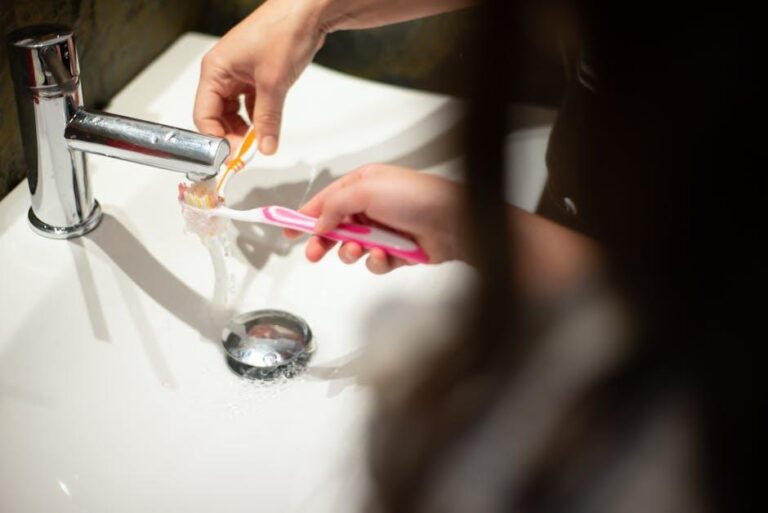Doctor Paul McConnell Talks About Kids & Dental Health – Eyewitness News (WEHT/WTVW)
Ensuring the dental health of children is a critical aspect of their overall well-being. On Eyewitness News WEHT/WTVW, Doctor Paul McConnell shares expert advice and vital information about kids’ dental care. Whether you’re a parent, guardian, or educator, understanding how to maintain and promote strong dental health habits in children can make a lifelong difference. In this comprehensive article, we dive into Doctor McConnell’s insights, practical tips, and the latest research on pediatric dental health.
Why Kids’ Dental Health Matters
Dental health in children is more than just keeping their teeth clean. It plays a fundamental role in their nutrition, speech development, self-esteem, and prevention of future health complications. Doctor Paul McConnell emphasizes that early dental care can reduce the risk of cavities, gum disease, and other oral health issues that often carry into adulthood.
- Healthy teeth support proper chewing and nutrition
- Strong oral health impacts speech and language development
- Early dental visits can help detect and prevent problems
- Good oral hygiene habits build self-confidence
Doctor Paul McConnell’s Top Tips for Kids’ Dental Care
From his experience treating young patients, Doctor McConnell offers this practical advice to parents and caregivers.
1. Start Early Oral Hygiene Habits
Begin cleaning your baby’s gums even before teeth erupt using a soft, damp cloth. Once teeth appear, start brushing twice daily with a soft-bristled toothbrush and a small, pea-sized amount of fluoride toothpaste.
2. Schedule Regular Dental Checkups
Experts recommend that children visit the dentist by their first birthday or within six months of the first tooth appearing. Regular visits help catch early issues and familiarize kids with dental environments.
3. Limit Sugary Snacks and Drinks
Doctor McConnell highlights the direct connection between sugar intake and cavities. Opt for healthier snacks like fruits, vegetables, and whole grains, and encourage water over sugary sodas or juices.
4. Encourage Proper Brushing and Flossing Techniques
Children should be supervised while brushing until they can do it effectively themselves, usually around age 7 or 8. Flossing should start as soon as two teeth touch.
5. Use Protective Gear During Activities
For kids involved in sports, wearing a mouthguard can prevent dental injuries. Doctor McConnell stresses the importance of custom-fit guards for optimal protection.
Understanding Common Pediatric Dental Issues
Doctor McConnell explains several dental challenges common in children and how to manage them.
| Dental Issue | Cause | Prevention / Treatment |
|---|---|---|
| Tooth Decay (Cavities) | Frequent sugar, poor brushing | Fluoride use, regular brushing, dental visits |
| Early Childhood Caries | Prolonged bottle feeding with sugary liquids | Weaning early, avoiding bedtime bottles |
| Gum Inflammation (Gingivitis) | Poor oral hygiene | Daily brushing and flossing, professional cleanings |
| Malocclusion (Crooked Teeth) | Genetics, thumb sucking, prolonged pacifier use | Early orthodontic consultation |
Benefits of Early Dental Care According to Doctor McConnell
Prioritizing dental health at a young age yields numerous benefits for children:
- Reduces risk of painful cavities and infections
- Prevents premature tooth loss, ensuring proper oral development
- Promotes better academic and social confidence
- Helps establish lifelong dental habits
Case Study: A Success Story Shared by Doctor McConnell
One family came to Doctor McConnell with their 5-year-old child experiencing multiple cavities and dental pain. By following a tailored oral hygiene plan, dietary adjustments, and minimal but effective dental treatments, the child’s oral health dramatically improved in six months. Early intervention not only stopped further decay but built healthy habits that the whole family adopted.
Practical Tips for Parents to Encourage Kids’ Dental Health
Doctor McConnell suggests these easy strategies to make dental care fun and routine:
- Make brushing a game: Use timers or brushing apps to motivate kids.
- Choose fun toothbrushes: Colorful toothbrushes or those featuring favorite characters encourage use.
- Lead by example: Brush and floss alongside your children.
- Reward positive behavior: Stickers or a small treat after clean checkups.
- Educate in simple terms: Explain why teeth need care so kids understand rather than fear.
Conclusion: Empowering Families with Knowledge on Kids’ Dental Health
Doctor Paul McConnell’s insightful discussion on Eyewitness News WEHT/WTVW reminds us that maintaining excellent dental health in children is an achievable and highly rewarding goal. Through early care, consistent routines, and professional guidance, parents can safeguard their children’s smiles and health for years to come. Prioritize dental visits, ensure proper oral hygiene, and make dental health a fun part of your child’s daily life.
Remember, a healthy smile is a confident smile. Start today and give your child the gift of lasting dental health!


